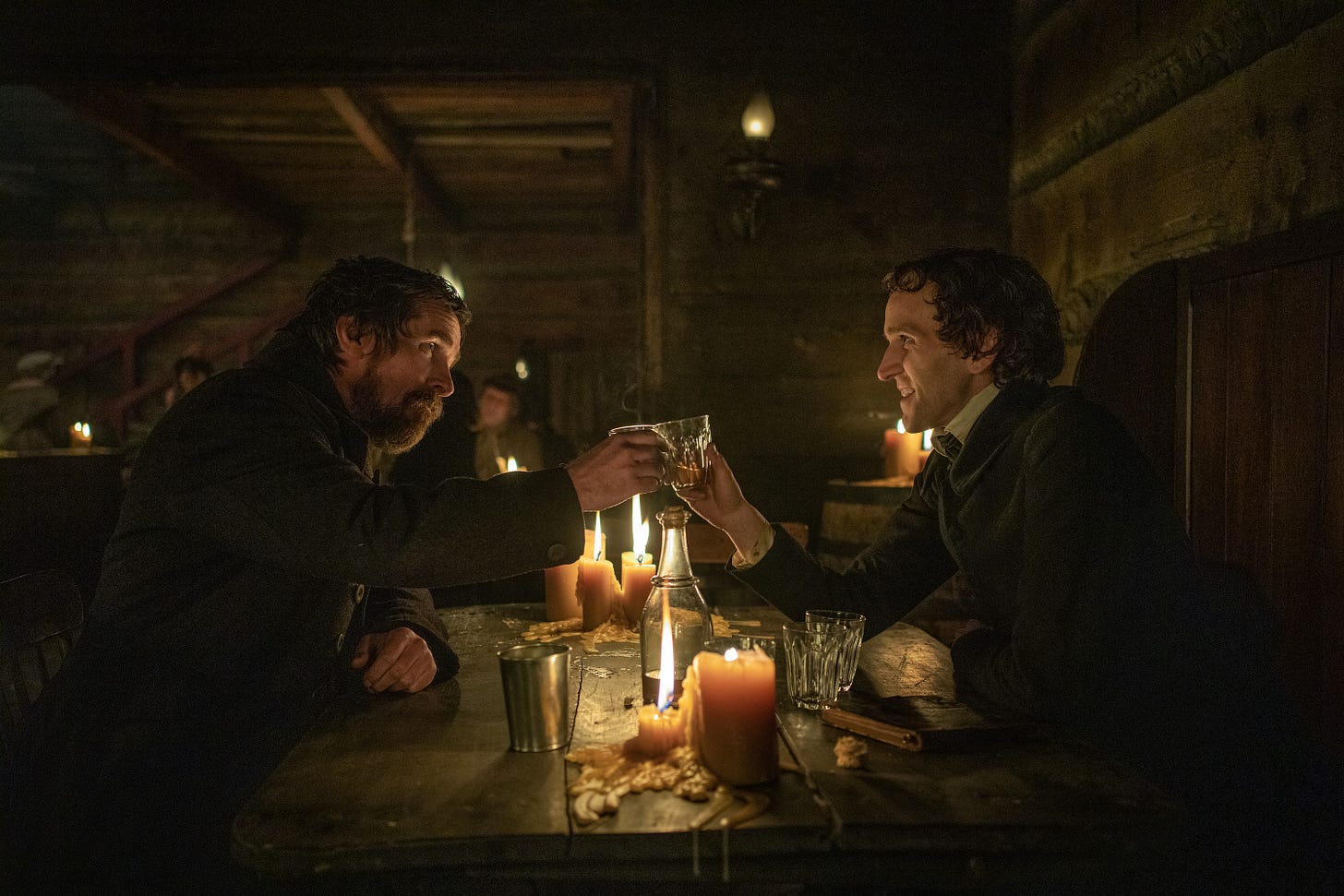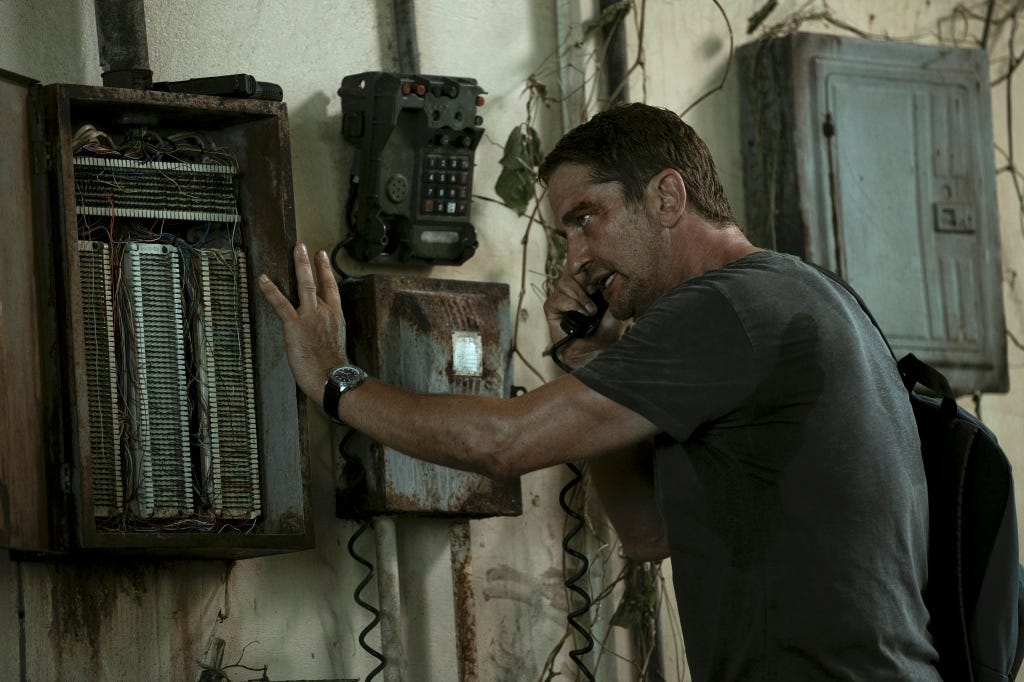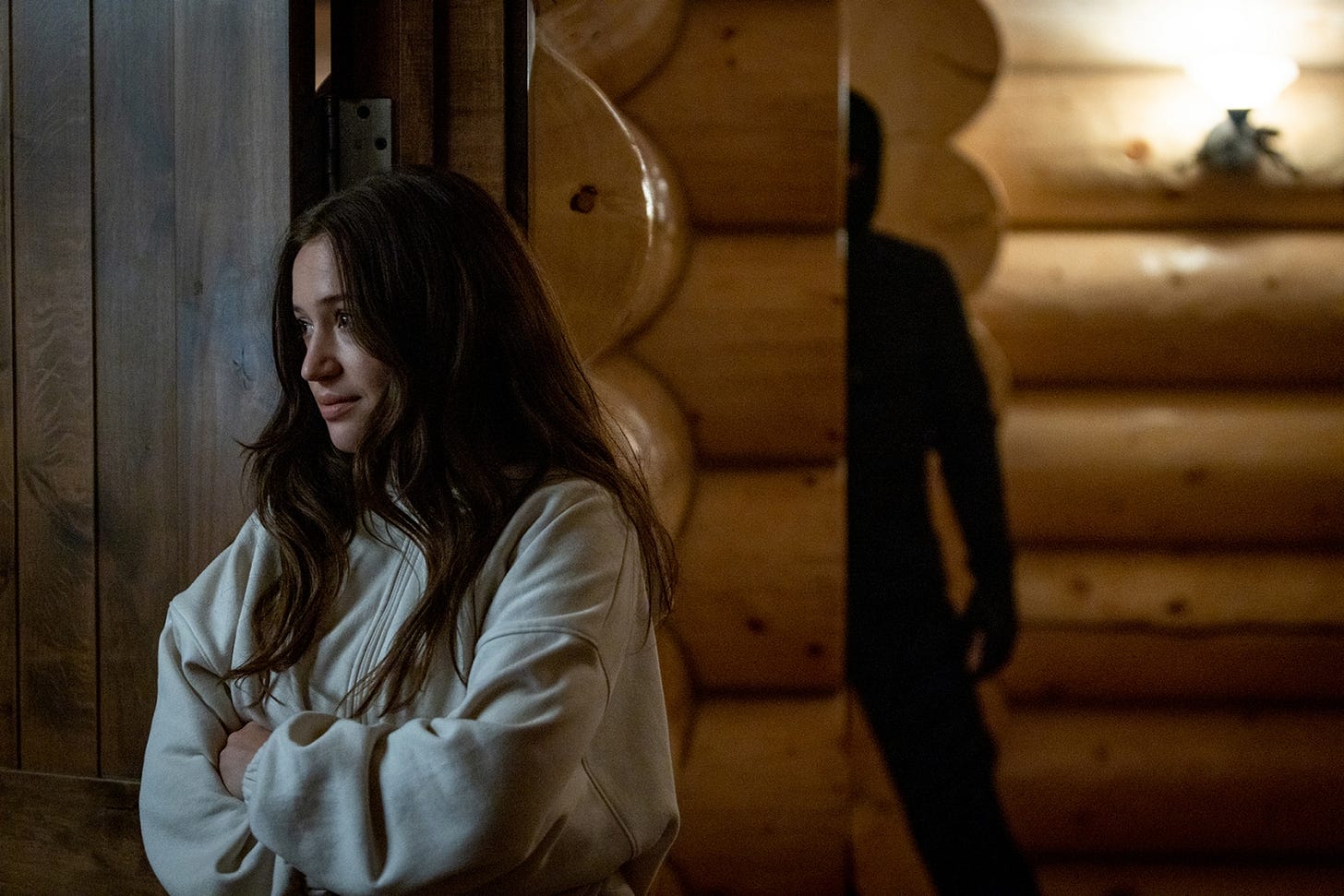'M3GAN': Configured for world domination
Thoroughly aware directing and an onslaught of memes help ascend Gerard Johnstone's kooky techno-thriller to the pantheon of horror legends.
Field Notes From Hell is Deep Cuts’ monthly email digest with capsule reviews of new horror releases. Plus, other horror-related updates.
In a word, the internet went insane when M3GAN first hit the airwaves. Clad in a preppy, Overlook-esque beige number, the eponymous synthetic droid chasséd all over pop consciousness with a marketing team’s Rolodex of memes at the ready. Like all others, I stopped what I was doing and pushed the excitement back down my belly when I first heard about it.
The earth stood still — as it damn well should.
You see, in a post-Malignant world, M3GAN is the type of horror so infallible you might as well go balls to the wall with it. Where the former pulled a bashful clickbait, the latter presents itself as is, assured, confident in its own latex skin.
They marketed the heck out of it and when it hit theaters, it went on to become the year’s first event film. A horror film. Could you imagine?!
It had all the best parts of a theatrical hit: a sci-fi premise that’s eerily more familiar now than ever before; a backing by inarguably the biggest rockstar of the genre (James Wan, serving as the film’s producer); and a trailer, designed, it seems, specifically, to pump out memes for the film.
Wan’s involvement is noteworthy in particular. 2021’s Malignant proved a welcome change of pace for the rest of the horror-loving crowds, sans film bros who are unable to let go of the A24, post-horror “character trait.” It signaled a shift in the genre, where filmmakers get to play and tell stories in a way that’s irreverent but still sensible. With Wan in the poster, M3GAN felt primed for world domination.
And all of this happened…literally. M3GAN grossed a very handsome sum at the global box office ($146 million!) and had such a magnetic pull with the critics, including this writer.
And though I feel endeared to films like this, I actively try not to be blind to their faults. For one, the director, Gerard Johnstone — a Kiwi filmmaker whose only other film credit is a 2014 possession horror called Housebound — seems unbothered by how unsubtle his film becomes, incisive and rich as it may with what it tries to say about artificial intelligence and the filthy, tech bro-infested industry that is poised to helm it.
The screenplay, written by Wan and his frequent collaborator, Akela Cooper (Hell Fest, Malignant), isn’t shameful about its indulgences and therefore carries with it a ton of bloat. Those who refuse to exercise patience might find the film grating and inferior: A less thrilling Upgrade, a weaker Ex Machina, and a spoof Black Mirror episode of Kazuo Ishiguro’s Klara and the Sun.
For everyone else, though, M3GAN will prove to be wildly funny and entertaining. Seriously, no sound mind will think to interlude their film with Sia’s “Titanium,” in the vocal stylings of an A.I. robot that is — get this! — also made of titanium. It’s iconic and I’ll take no objections.
Each month, I compile quick reviews of horror (and horror-adjacent) films I’ve watched. They’re a mix of new and old releases. If you want to catch them in real time, feel free to follow my Letterboxd.
Here are this month’s reviews.
Scott Cooper’s The Pale Blue Eye is aptly grim and determined. “Apt” is the operative term in that it inhabits the same plane of existence as the literary figure whose voice it tries to emulate — Edgar Allan Poe. In fact, it casts him in it, as an ever-astute, surprisingly romantic young steward to Christian Bale’s world-weary detective. Though the sum of the film’s greater parts doesn’t mix well, I can’t say I’m wholly displeased with it.
Jean-François Richet's Plane feels like the prototypical action-thriller of its ilk: narratively bland, single-minded, and overcome with its penchant for steroidal violence. It is, as the zoomers say, 'aggressively adequate,' striving to make an ample, workmanlike output rather than a resonant one. Its backdrop — a forsaken, extremist-seized expanse on the island of Jolo — feels inconsequential. Replace it with any terror-struck land and you get the same film. Guess it's on me for hoping for something more from a film with a title as (pardon the pun) plain as this one.
John Hyams' Sick had no business being the gripping invasion thriller it ended up being. Genuinely curious to see what he can do with deeper pockets and a screenplay that won't bog itself down.
Roxanne Benjamin’s There’s Something Wrong with the Children feels like a shell of itself. Falls flat on every front. The manic score, Benguiat-esque font used in the title sequence, and the bug-like Steadicam POV shots feel propped to pander to a particularly forgiving subset of cinephiles — but that can only take you so far.
Apart from the occasional brilliance in the action set pieces, it’s tough to feel more endeared to Gareth Evans’ Apostle. It’s narratively unfocused and frustratingly paced. The ensemble tries to make lemonade with half-ripe lemon parts, as the film devices contrivance after contrivance that leads to an otherwise bloody and thrilling finale. It tries to get on the same level as V/H/S 2: Safe Haven — a religious cult horror Evans made with Timo Thahjanto and arguably superior in every way — but never quite gets there.
Thank you for reading Field Notes From Hell. If you like what you read, I’d appreciate it if you shared it with a friend.
Consider subscribing to my newsletter. All Field Notes From Hell writings are available for free, forever.
— Armand.












